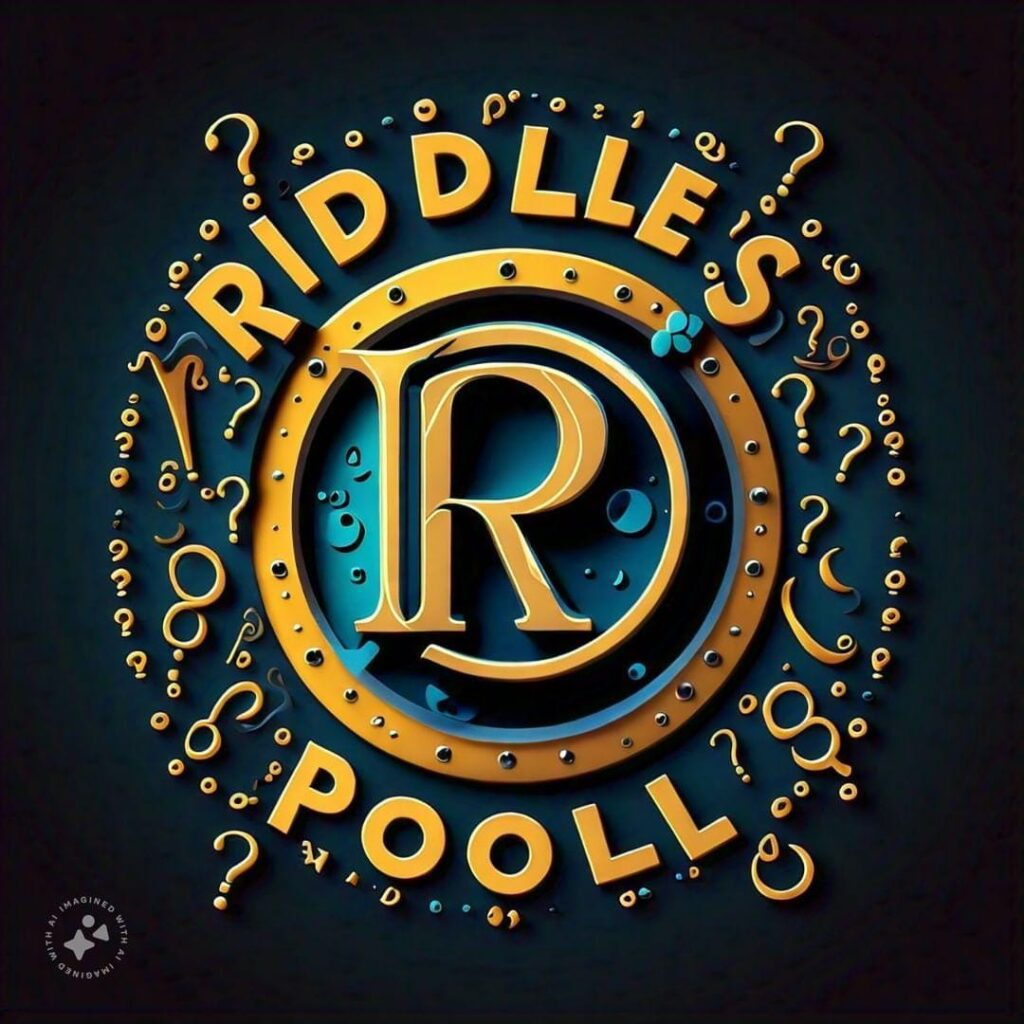
Time's up

Time is Up!
Riddles Quiz: Unleash Your Inner Genius
Are you ready to challenge your mind and have some fun? Welcome to the Riddles Quiz, where you can test your wits, sharpen your thinking skills, and enjoy a delightful brain workout! Riddles are not just puzzles; they are a fantastic way to enhance your cognitive abilities, improve problem-solving skills, and entertain yourself and your friends. Let’s dive into the exciting world of riddles and quizzes! Want some sex riddles?
What Are Riddles?
Riddles are clever questions or statements that require creative thinking to solve. They often play with words and meanings, leading to amusing or surprising answers. Historically, riddles have been a part of human culture for centuries, serving as both entertainment and a means of intellectual challenge. From ancient times to modern-day gatherings, riddles have entertained and intrigued people of all ages.
The History of Riddles
The art of riddle-making dates back to ancient civilizations. The earliest recorded riddles can be found in the writings of the ancient Greeks and Sumerians. In these cultures, riddles were often used in religious ceremonies and storytelling, showcasing wisdom and cleverness. Riddles have since evolved into a popular form of entertainment in various cultures worldwide, from the clever conundrums of the Renaissance to the witty wordplay found in modern-day trivia games.
The Benefits of Solving Riddles
Engaging in a Riddles Quiz comes with a myriad of benefits:
- Enhances Critical Thinking: Riddles require you to think critically and analyze situations from different angles. Solving riddles encourages you to identify patterns, make connections, and draw logical conclusions.
- Boosts Creativity: The creative nature of riddles encourages out-of-the-box thinking, fostering your imaginative skills. When you solve or create riddles, you engage in a playful exploration of language and concepts.
- Improves Memory: Solving riddles can help improve memory retention and recall. The process of deciphering clues and associating them with possible answers strengthens neural connections related to memory.
- Provides Entertainment: Whether you’re alone or with friends, riddles offer a fun and engaging way to pass the time. They are perfect for parties, family gatherings, or even casual conversations, adding an element of excitement and competition.
Types of Riddles
When it comes to riddles, there are several types to explore in a Riddles Quiz. Here are some popular categories, each with examples:
- Classic Riddles: These traditional riddles have been passed down through generations. They often rely on clever wording or lateral thinking. For example:
- What has keys but can’t open locks?
Answer: A piano.
- What has keys but can’t open locks?
- Word Riddles: These riddles play with language and word meanings, often leading to humorous or unexpected answers. For instance:
- What begins with T, ends with T, and has T in it?
Answer: A teapot.
- What begins with T, ends with T, and has T in it?
- Math Riddles: Perfect for those who enjoy numbers, math riddles challenge your arithmetic skills while being fun. An example is:
- I am an odd number. Take away one letter, and I become even. What number am I?
Answer: Seven.
- I am an odd number. Take away one letter, and I become even. What number am I?
- Logic Riddles: These require logical reasoning to solve, often involving a scenario that needs unraveling. For instance:
- You see a boat filled with people. It has not sunk, but when you look again, you don’t see a single person on the boat. Why?
Answer: All the people were married.
- You see a boat filled with people. It has not sunk, but when you look again, you don’t see a single person on the boat. Why?
- Funny Riddles: A great way to lighten the mood, funny riddles are designed to make you laugh while you think. For example:
- Why can’t you give Elsa a balloon?
Answer: Because she will let it go!
- Why can’t you give Elsa a balloon?
- Visual Riddles: These riddles use images or diagrams, challenging participants to interpret what they see and solve the puzzle based on visual clues.
- Riddles for Kids: Simple and engaging riddles that are suitable for children, helping them develop their critical thinking in a fun way. For example:
- What has to be broken before you can use it?
Answer: An egg.
- What has to be broken before you can use it?
How to Create Your Own Riddles
Feeling inspired? Creating your own riddles can be a fun exercise! Here’s a step-by-step guide to get started:
Step 1: Choose a Theme
Decide on a subject for your riddle, such as animals, objects, or emotions. A focused theme can help you brainstorm ideas more easily.
Step 2: Use Wordplay
Incorporate puns or play with the meanings of words to create clever twists. Think about homophones, double meanings, and rhymes to make your riddle intriguing.
Step 3: Keep It Simple
The best riddles are often simple yet thought-provoking. Aim for clarity while maintaining intrigue. Avoid overly complex language that might confuse the solver.
Step 4: Test Your Riddle
Share your riddle with friends or family to see if they can solve it. This feedback will help you adjust the difficulty level and ensure it’s engaging.
Step 5: Fine-Tune the Answer
Make sure the answer is logical and directly relates to the clues you provided. This will prevent frustration and enhance the fun of solving the riddle.
Join the Riddles Quiz Challenge!
Are you ready to put your riddle-solving skills to the test? Gather your friends and family for a Riddles Quiz night! Here’s how to set up your quiz for maximum fun:
Step 1: Gather Your Riddles
Collect a mix of riddles from various categories, ensuring a balance of difficulty levels. Aim for at least 10-15 riddles to keep things interesting and engaging.
Step 2: Set the Rules
Decide on a scoring system. You can award points for correct answers, and even bonus points for the fastest response! For added excitement, consider incorporating timed rounds where participants must answer as many riddles as possible within a time limit.
Step 3: Enjoy the Quiz
Take turns asking the riddles, allowing each participant to answer. Encourage laughter and creativity in responses, and celebrate every correct answer! You can also introduce a lifeline system where participants can ask for hints or consult each other for answers.
Step 4: Crown the Riddle Champion
At the end of the quiz, tally the points to determine the winner. Consider giving a fun prize, like a trophy or a certificate, to the riddle champion to make it even more exciting!
Conclusion
Participating in a Riddles Quiz is not only an enjoyable pastime but also an excellent way to engage your brain and bond with friends and family. So, what are you waiting for? Challenge yourself, embrace your curiosity, and dive into the world of riddles! Whether you’re a seasoned riddle master or a curious beginner, there’s always something new to discover.
Frequently Asked Questions
1. What is a riddle?
A riddle is a statement or question that poses a puzzle to solve, often using wordplay and requiring creative thinking. Riddles can be humorous, serious, or educational.
2. How do riddles benefit the mind?
Riddles enhance critical thinking, boost creativity, improve memory, and provide entertainment, making them a beneficial activity for mental exercise. They encourage you to think outside the box and develop problem-solving skills.
3. Where can I find riddles for my quiz?
You can find riddles in books, online resources, or even by creating your own using themes and wordplay. Websites and apps dedicated to trivia and puzzles are also excellent sources.
4. Can I create my own riddles?
Absolutely! Creating your own riddles is a fun exercise that allows you to play with words and challenge others. Start by following the tips outlined above.
5. What age group can enjoy riddles?
Riddles can be enjoyed by people of all ages, from children to adults, making them a versatile form of entertainment. They can be tailored to suit any age group by adjusting the difficulty and content.
6. How can I make a Riddles Quiz more engaging?
To make your Riddles Quiz more engaging, consider incorporating themes, timed challenges, or team competitions. Encourage participants to explain their thought processes when answering, which can lead to interesting discussions and laughter.





